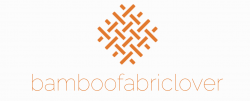When it comes to finding bamboo fabric in Canada, there are several options available for those looking to purchase this sustainable and versatile material.
What Is an Alternative to Bamboo Fabric?
When it comes to sustainable fabrics, bamboo has been gaining popularity in recent years. However, if youre looking for alternatives to bamboo fabric, there are a few options worth considering. One such alternative is linen, a natural fiber derived from the flax plant. Linen is highly breathable, durable, and has antibacterial properties. It’s also a renewable resource and requires less water and energy compared to bamboo fabric.
Unlike conventional cotton, which is grown using harmful pesticides and synthetic fertilizers, organic cotton is produced without these chemicals. It’s better for the environment, as it reduces water pollution and promotes healthier soil. Additionally, organic cotton is soft, breathable, and hypoallergenic, making it a great choice for those with sensitive skin.
Hemp is yet another viable substitute for bamboo fabric. Hemp fiber is derived from the stalk of the cannabis plant and has been used for centuries to produce various textiles. It’s a highly sustainable crop, as it requires minimal water and can be grown without the need for pesticides. Hemp fabric is also naturally antimicrobial and breathable, making it an excellent option for clothing and household textiles.
Consider incorporating these alternatives into your wardrobe and home to support a more sustainable and environmentally-friendly lifestyle.
Recycled Polyester, a Fabric Made From Recycled Plastic Bottles. It Helps Reduce Waste and Conserve Resources.
Recycled polyester is a fabric derived from recycled plastic bottles, contributing to waste reduction and resource conservation.
While rayon can be made from bamboo, not all rayon is made from this plant source. Rayon is a versatile fabric that can be derived from various plant materials, including bamboo, as well as wood pulp, cotton, and other cellulose-based sources. It’s important to note that when purchasing rayon products, it’s necessary to check the labels for the specific type of rayon used, as it can be made from different plant sources.
Is Rayon 100% Bamboo?
Not all rayon is made from bamboo. Rayon can be made from various plant sources, including trees such as beech and pine, as well as from other plants like hemp and bamboo. The process of turning cellulose into rayon involves dissolving the cellulose in a chemical solution and then forcing the solution through a spinneret to form filaments. These filaments are then treated to produce the final rayon fibers.
While bamboo rayon is marketed as a more sustainable and eco-friendly alternative to conventional rayon, there’s been some controversy surrounding it’s production. The chemicals used in the process of converting bamboo into rayon can be harmful to the environment if not properly managed, and there have been reports of improper waste disposal by some bamboo rayon producers.
It’s important to consider the source and production methods when choosing rayon products, to ensure that they align with your values and preferences.
The Environmental Impact of Bamboo Rayon Production
Bamboo rayon production is a process that involves converting bamboo fibers into soft and durable fabrics. This production method is often promoted as an eco-friendly alternative to traditional textiles. Unlike other fabrics, bamboo rayon production requires less water and pesticides, making it a more sustainable choice. Additionally, bamboo plants are fast-growing and highly renewable, reducing the strain on natural resources. When properly managed, bamboo rayon production has a minimal environmental impact and can contribute to a greener future.
Source: What Is Rayon From Bamboo? | Snoozy Monk
Conclusion
Local retailers, online marketplaces, and specialty stores cater to different preferences and budgets, ensuring that consumers have convenient access to this versatile material. With it’s numerous benefits including softness, breathability, and renewable sourcing, the demand for bamboo fabric continues to grow.
